Total War Warhammer II, Call of Duty WWII
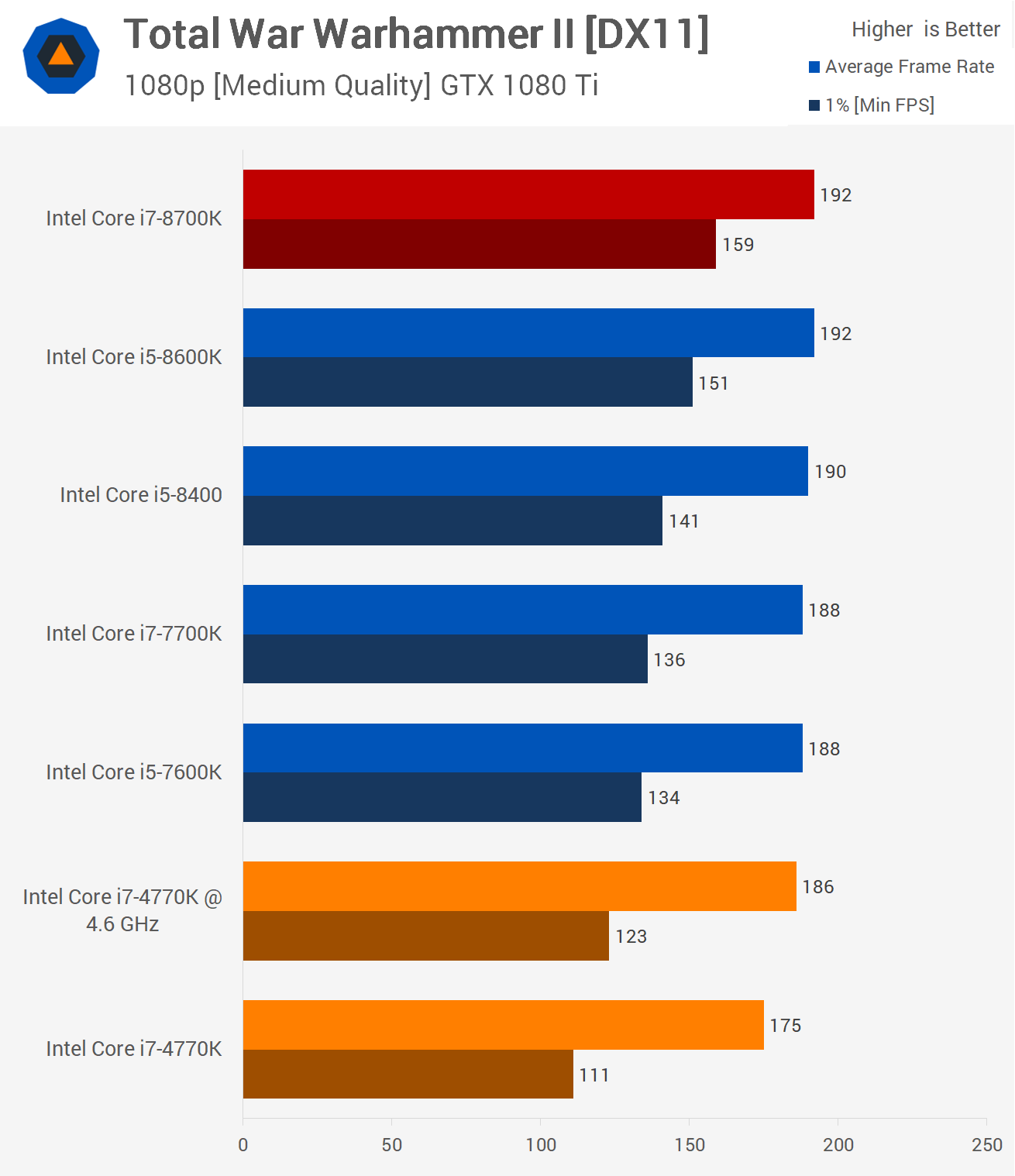
In Total War: Warhammer and Call of Duty: WWII we're going to look at the performance across three quality presets being medium, high and ultra with the GTX 1080 Ti, just for something different.
Starting with the medium results we see something quite interesting. Although the average frame rate is similar across the CPUs tested the 1% low result does vary quite a bit. Even after overclocking, the 4770K trails the 7600K and is 22% slower than the 8700K. That said, I have to point out again that frame rates remained well over 100fps at all times.
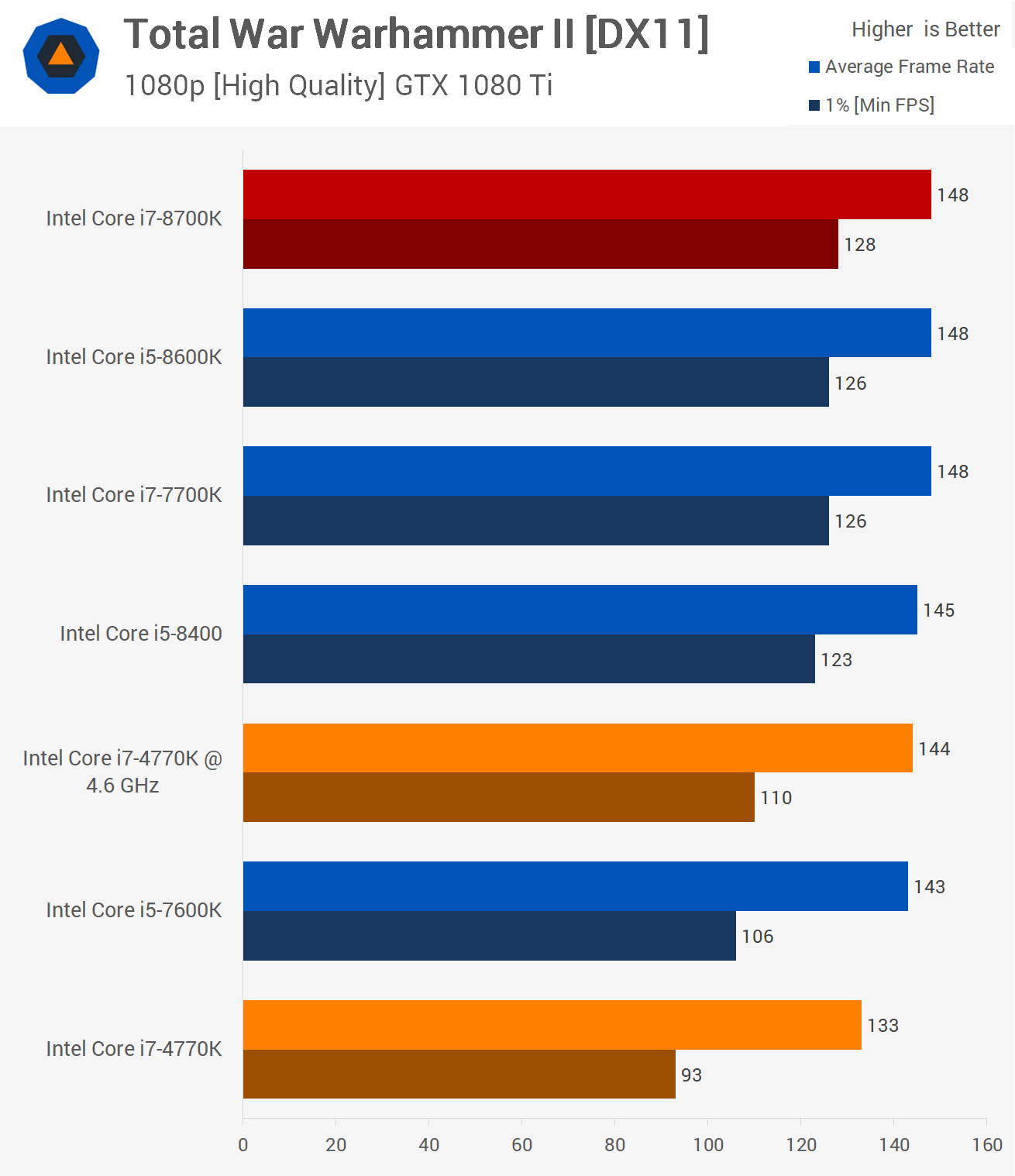
Increasing the GPU load with the high quality preset, the overclocked 4770K minimum result is just 14% lower than that of the 8700K. This margin would of course be reduced further at a higher resolution such as 1440p. Speaking of which, let's simulate that in a way by using the ultra quality preset.
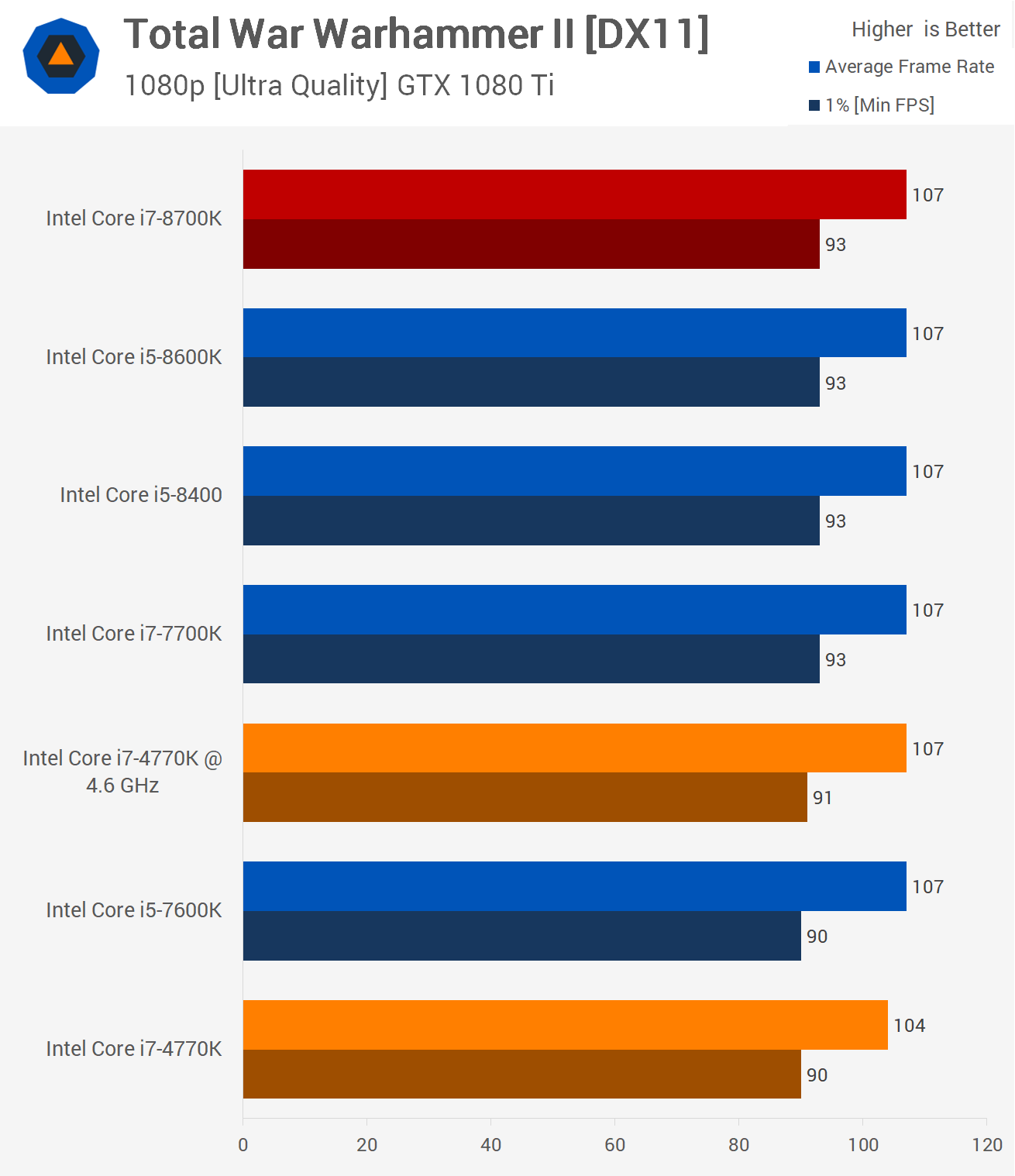
Well there you go, playing even with a GTX 1080 Ti at 1080p, this game is heavily GPU bound with the ultra quality settings. Remember most of the games we've looked at so far were tested with the second highest quality preset enabled to try and reduce the GPU bottleneck, though I'm aware that doing so comes with mixed blessings.
Anyway, here we see virtually no difference in performance between any of the CPUs tested whereas previously the overclocked 4770K was as much as 22% slower than the 8700K.
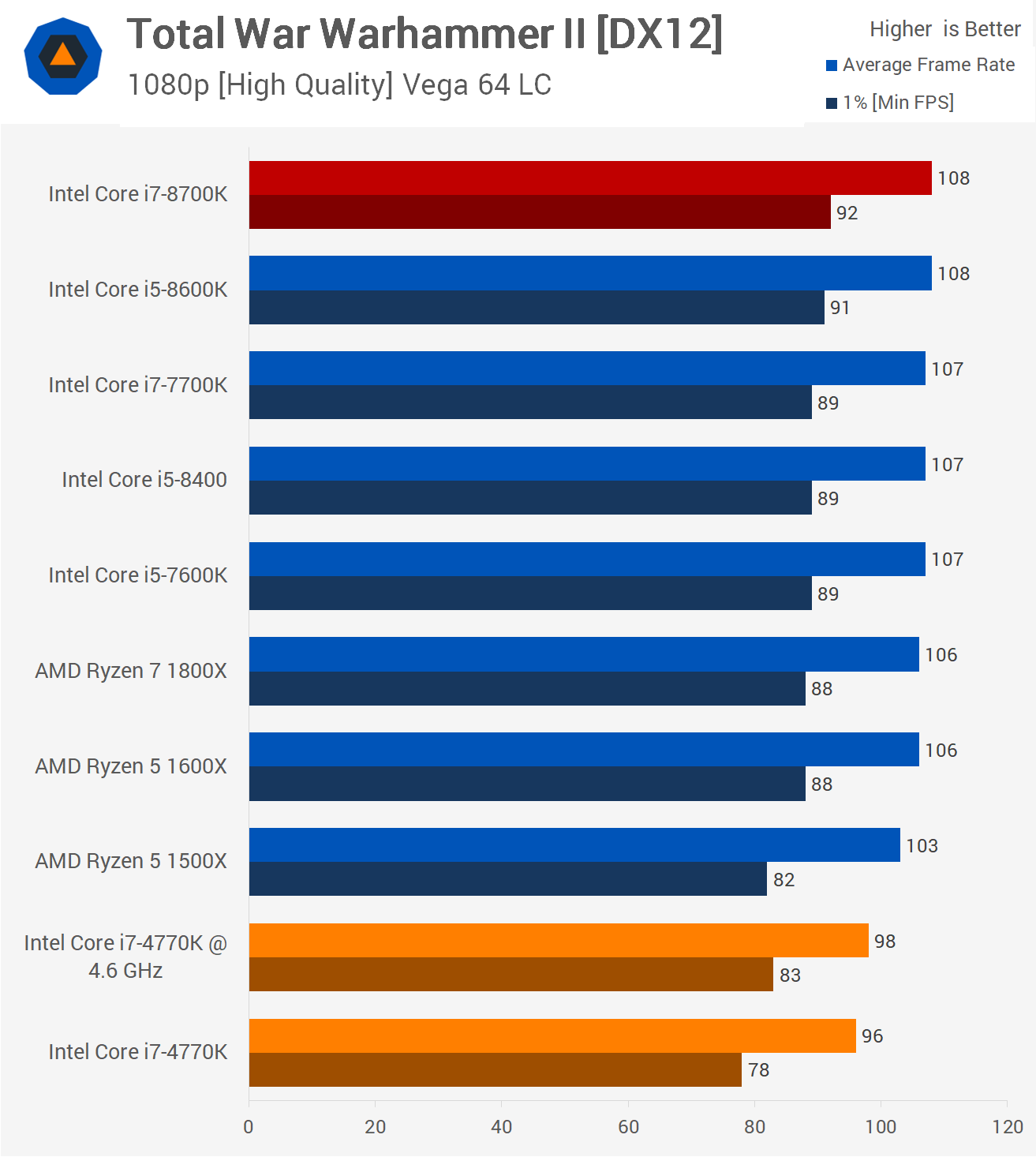
Before moving on, I thought I'd give you a look at the Vega 64 Liquid Cooled results for Warhammer II. For those of you wondering this GPU sits between the GTX 1080 and 1080 Ti in this title using the high quality preset at 1080p. This has allowed the overclocked 4770K to close in on the 8700K, the previous high quality test with the 1080 Ti saw the Haswell CPU trail by a 14% margin, now with Vega 64 it's just 10% slower.
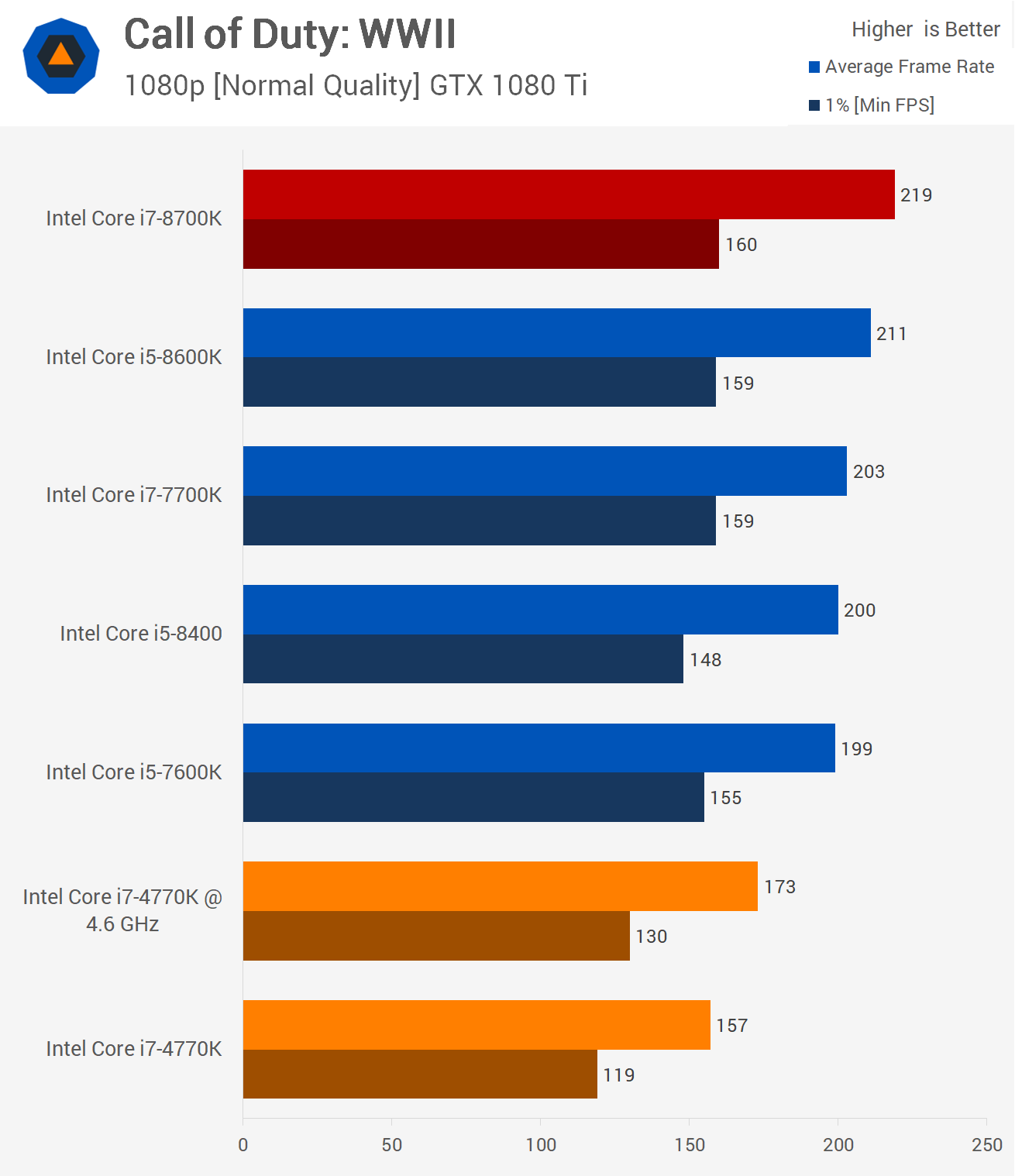
The last game I'll be testing is Call of Duty WWII and again let's check out three quality levels, normal, high and extra. Starting with normal we find that even when overclocked the 4770K trails the 7600K, in fact overclocked the older Core i7 processors average frame rate was boosted by just 10%. This meant it was a little over 20% slower than the 8700K but again with well over 100fps at all times that margin probably doesn't mean much.
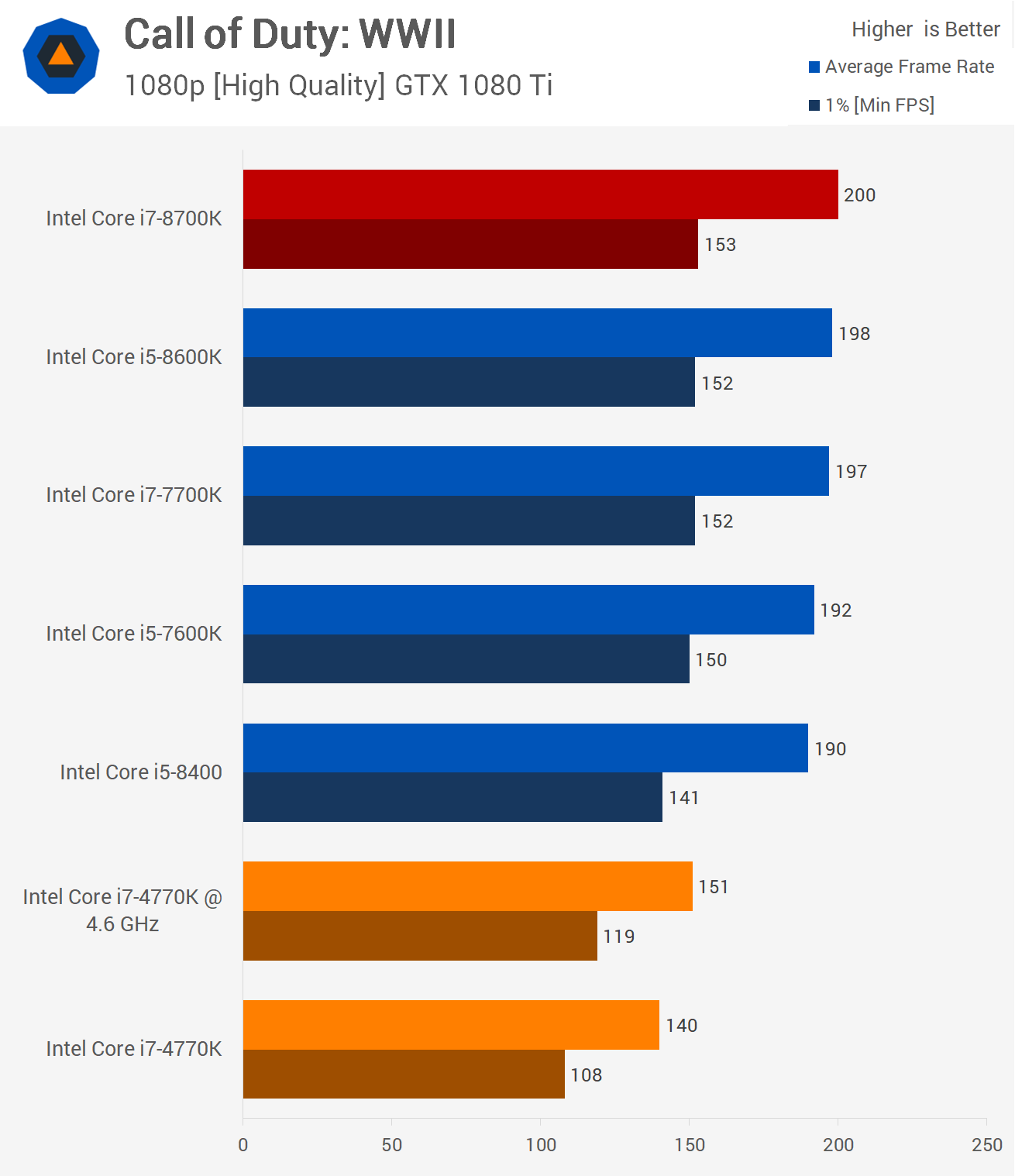
Increasing the quality preset to high doesn't change the margins much and here the 4770K still allowed for well over 100fps at all times, at least once overclocked.
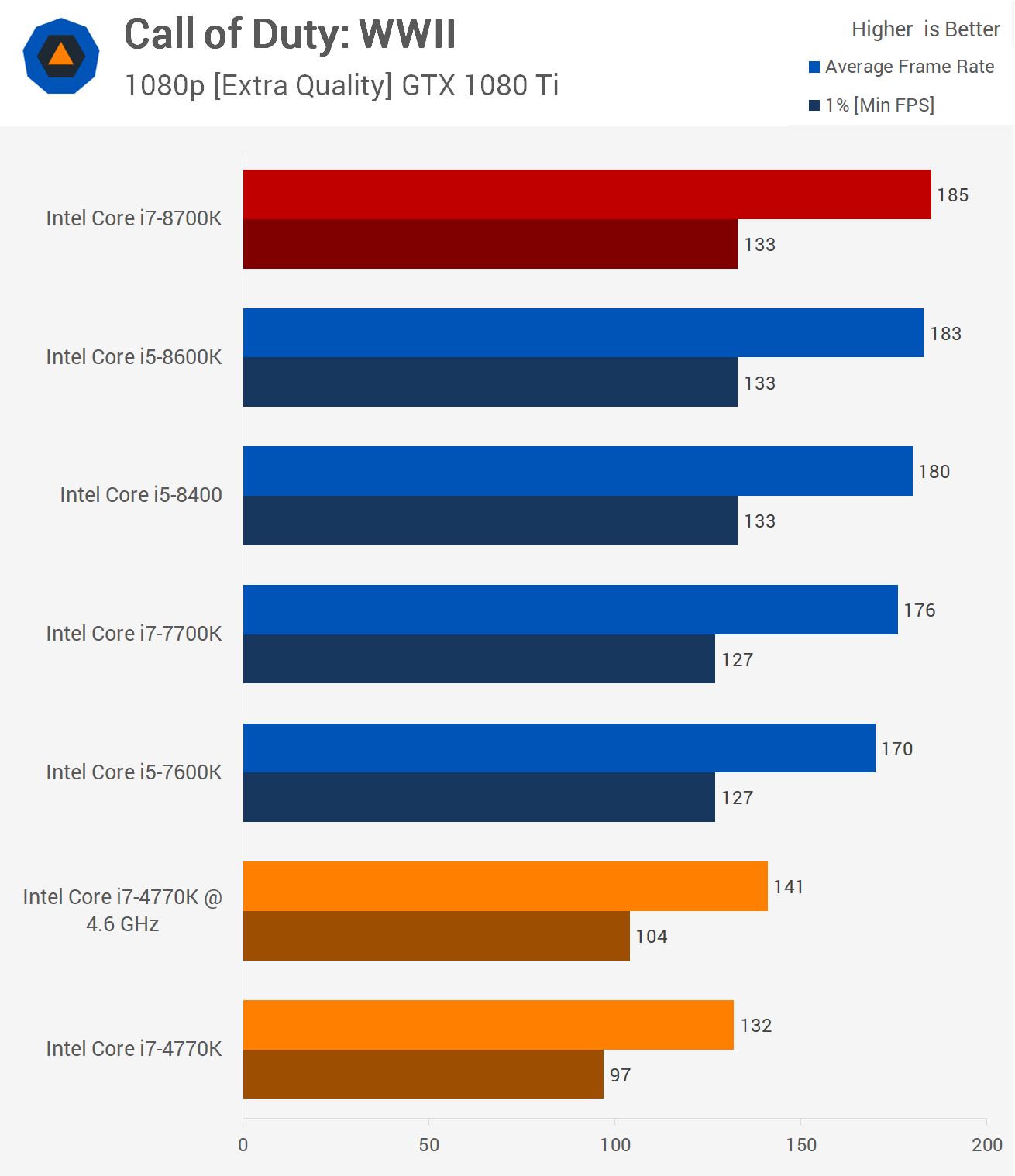
The overclocked 4770K was still 24% slower than the 8700K on average with the extra quality settings enabled. The 4770K again looks to be bandwidth limited as the 4.6GHz overclock did little to improve performance.
